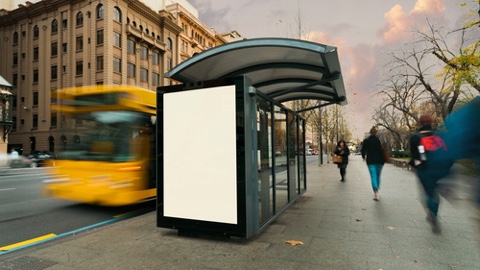
As cities look for economical ways to enhance urban appeal and services, smart street furniture offers a unique technology solution. City residents are able to receive useful services, such as WiFi, mobile charging, interactive city maps, and real-time city information and alerts, while the maintenance of street furniture is funded via advertising revenue, helping local authorities provide a state-of-the-art public service at no cost to the public.
For example, New York City is funding its smart kiosks entirely through advertising proceeds, which will generate $500 million in revenue for the city. In addition, cities gather air quality, traffic, and noise data from sensors on the smart street furniture to better manage city dynamics and increase neighborhood safety.
The City of Sydney, Australia serves as another example. JC Deaux, a French advertising company, has a contract with the city for street furniture that includes signs, bus shelters, garbage cans, seats, and kiosks. This smart street furniture includes “Live Touch”, an information resource that provides four apps: photos with images and information for main Sydney attractions; weather and forecasts; maps with points of interest, retail directions and transport links; as well as a QR code so consumers can save transport routes to their smartphones.
The CEO of JCDeaux stated, “We see our business as expanding to help make the city smarter by having active screens where people can check transport timetables, tourist information and eventually work with retailers to possibly sell items through a range of technology.”
Live Touch is already in use in Paris where bus shelters include an AFP news feed, defibrillators, 72-inch screens for advertising and public information, such as a jobs board, and USB sockets to charge phones.


